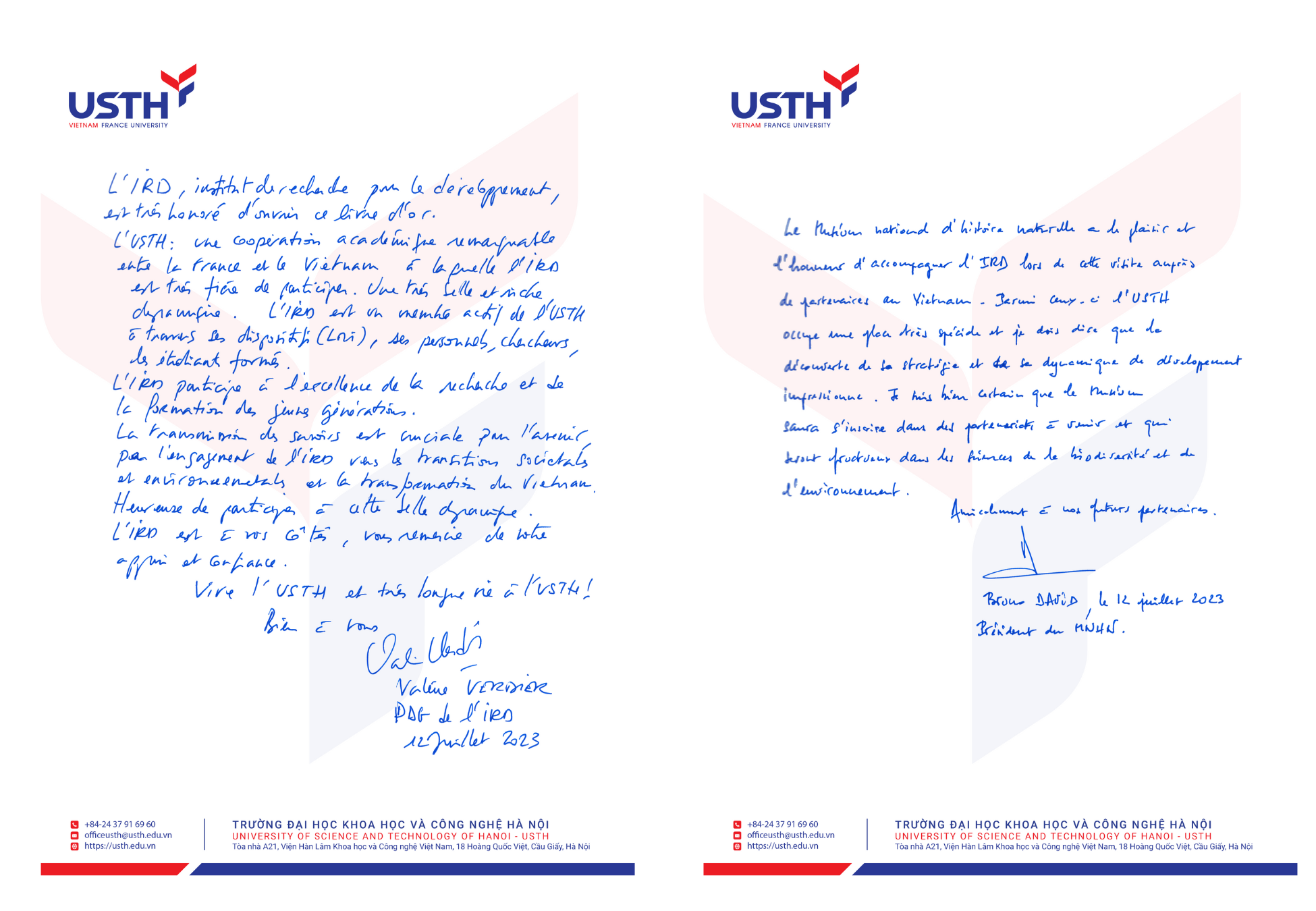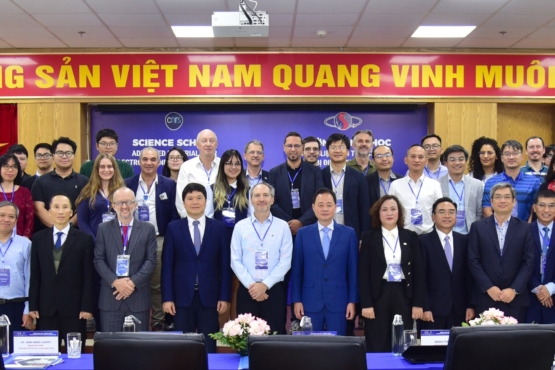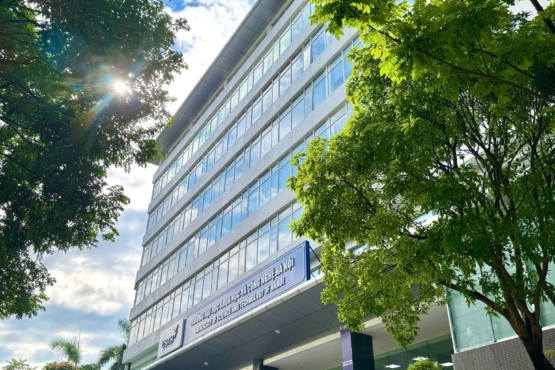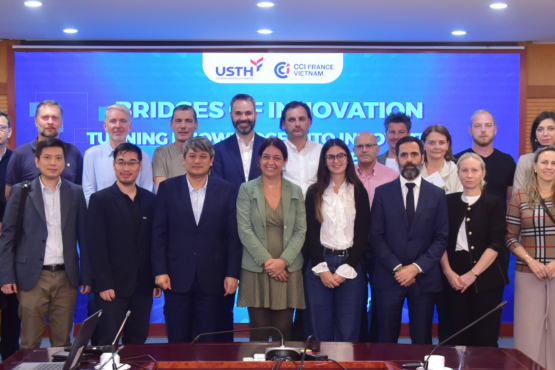On July 12, 2023, Dr. Valérie Verdier, the CEO and Chairwoman of the Board of the Research Institute for Development (IRD) in France, and Mr. Bruno David, the President of the French National Museum of Natural History (MNHN), visited the University of Science and Technology of Hanoi (USTH) during their trip to Vietnam. The purpose of their visit was to hold a meeting and sign a cooperation agreement for the development of the International Joint Lab called “Land-Ocean-Atmosphere Coupled System” (LOTUS) for the period of 2023-2027.
The meeting was attended by Dr. Valérie Verdier, the CEO and Chairwoman of the Board of IRD; Dr. Claude-Anne Gauthier, the Director of International and European Relations at IRD; Dr. Philippe Charvis, the Deputy Director of Science at IRD; Mr. Vincent Drapea, the Asia-Pacific Mission Manager of IRD; Dr. Edmond Dounias, the Director of the Representative Office in Vietnam at IRD; Mr. Bruno David, the President of MNHN; Mr. Emmanuel Skoulios, the Deputy Managing Director of MNHN; Mrs. Sophie Maysonnave, the Counsellor for Cooperation & Cultural Affairs at the French Embassy in Vietnam; and Prof. Dominique Laffly, the Attaché for Scientific and University Cooperation at the French Embassy in Vietnam.
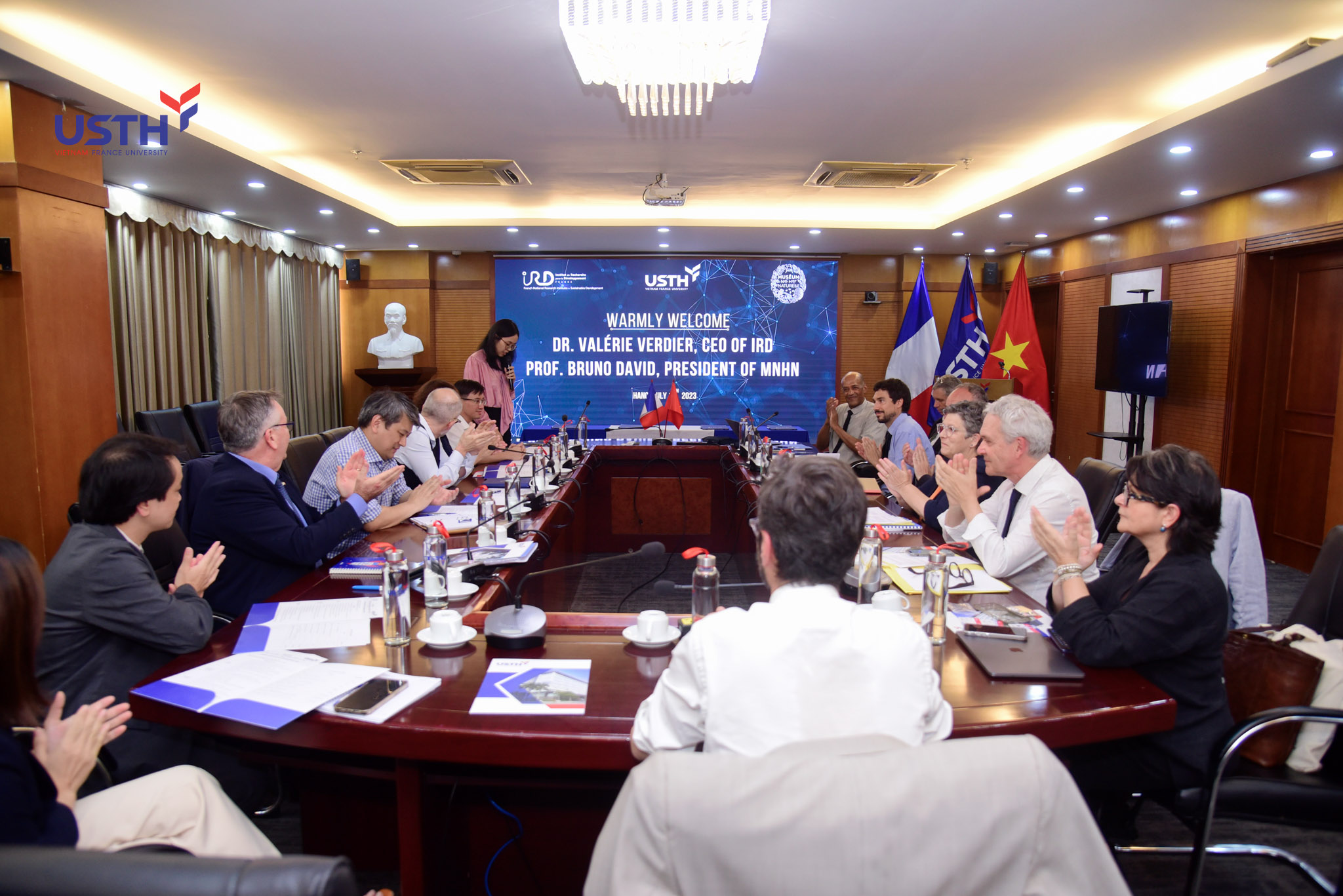
Representing USTH were Prof. Jean-Marc Lavest, the Principal Rector; Assoc. Prof. Dinh Thi Mai Thanh, the Rector; Assoc. Prof. Tran Dinh Phong, the Vice-Rector; as well as the leaders of academic departments and the Department of International Cooperation.
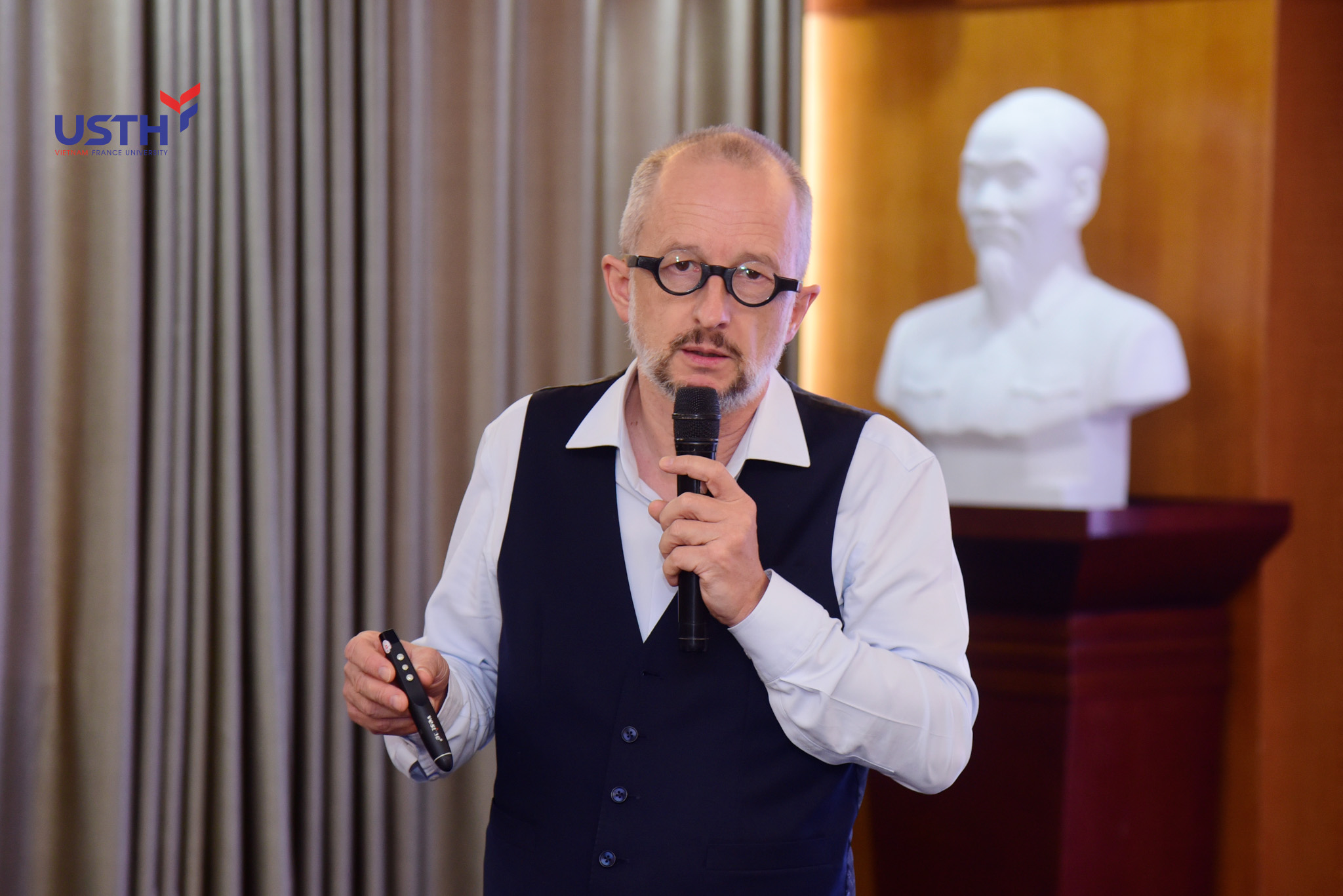
During the meeting, Prof. Jean-Marc Lavest expressed his pleasure in welcoming Dr. Valérie Verdier, Mr. Bruno David, and the delegation from IRD and MNHN to USTH. He highlighted the importance of IRD as a member of the USTH Consortium and a significant partner in establishing and developing international joint labs. These joint labs bring together experienced scientists from Vietnam, France, and other countries to address global issues such as health, climate change, and sustainable development.
USTH and IRD have collaborated on the establishment of four international joint labs, namely the “Functional Genomics and Biotechnology of Plants and Associated Microorganisms” Lab (LMI-RICE), the “Drug Resistance in Southeast Asia” Laboratory (LMI-DRISA), the Land-Ocean-Atmosphere Coupled System Research Laboratory (LMI-LOTUS), and the Information and Communication Technology Laboratory (ICTLab). Prof. Jean-Marc Lavest stressed the significance of these joint labs to USTH’s research activities and expressed appreciation for IRD’s support.
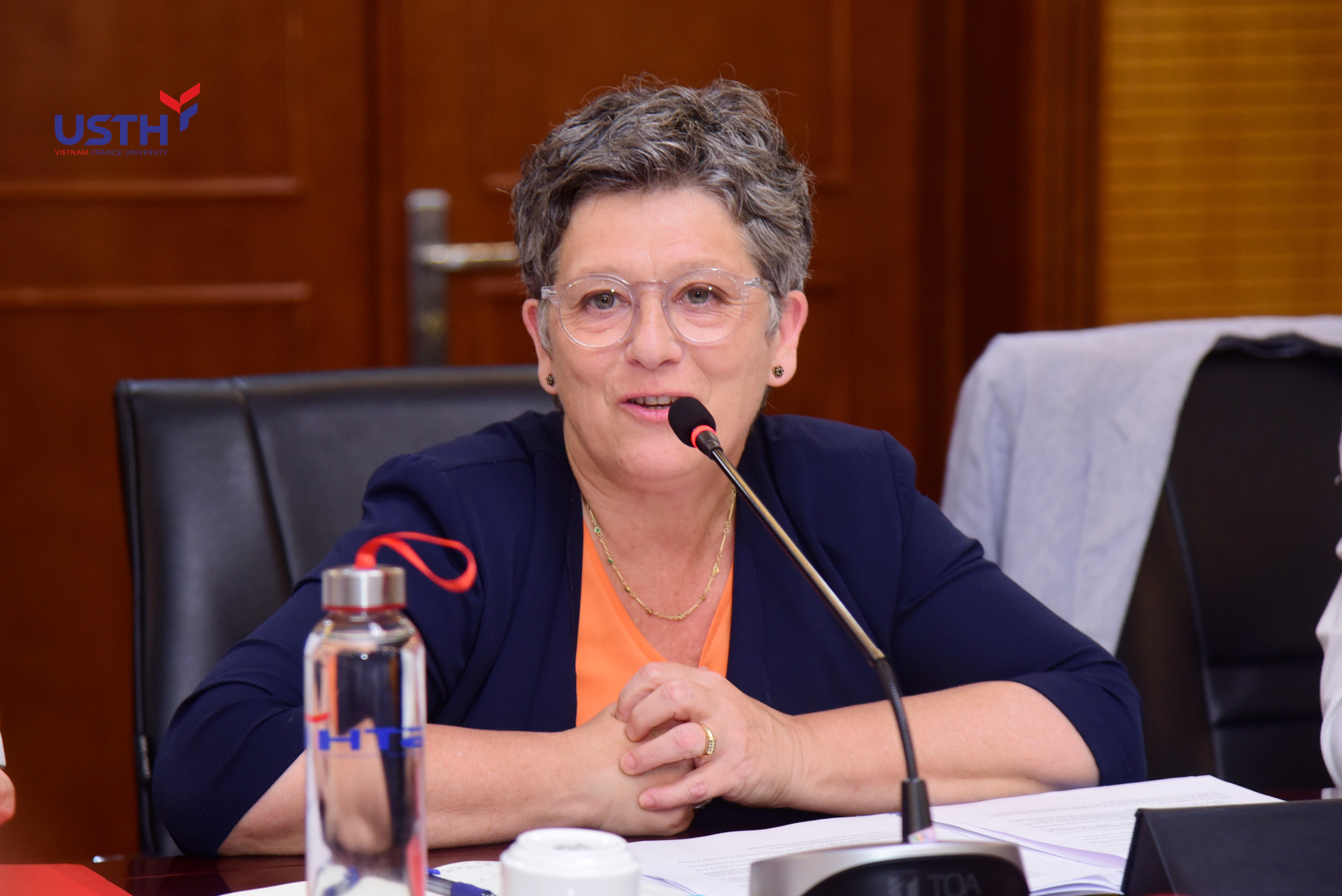
During the meeting, Prof. Jean-Marc Lavest provided an overview of USTH’s history, training model, and achievements over the past 14 years. He shared the university’s plans to become a leading institution in science and technology education and research in Vietnam and the region.
Furthermore, Prof. Jean-Marc Lavest discussed the goals, challenges, and opportunities in USTH’s research development. The university aims to be among the top three universities in terms of research quality in science and technology in Vietnam by 2025. To achieve these goals, he expressed hope for strong support from IRD and MNHN in building and developing international research projects.
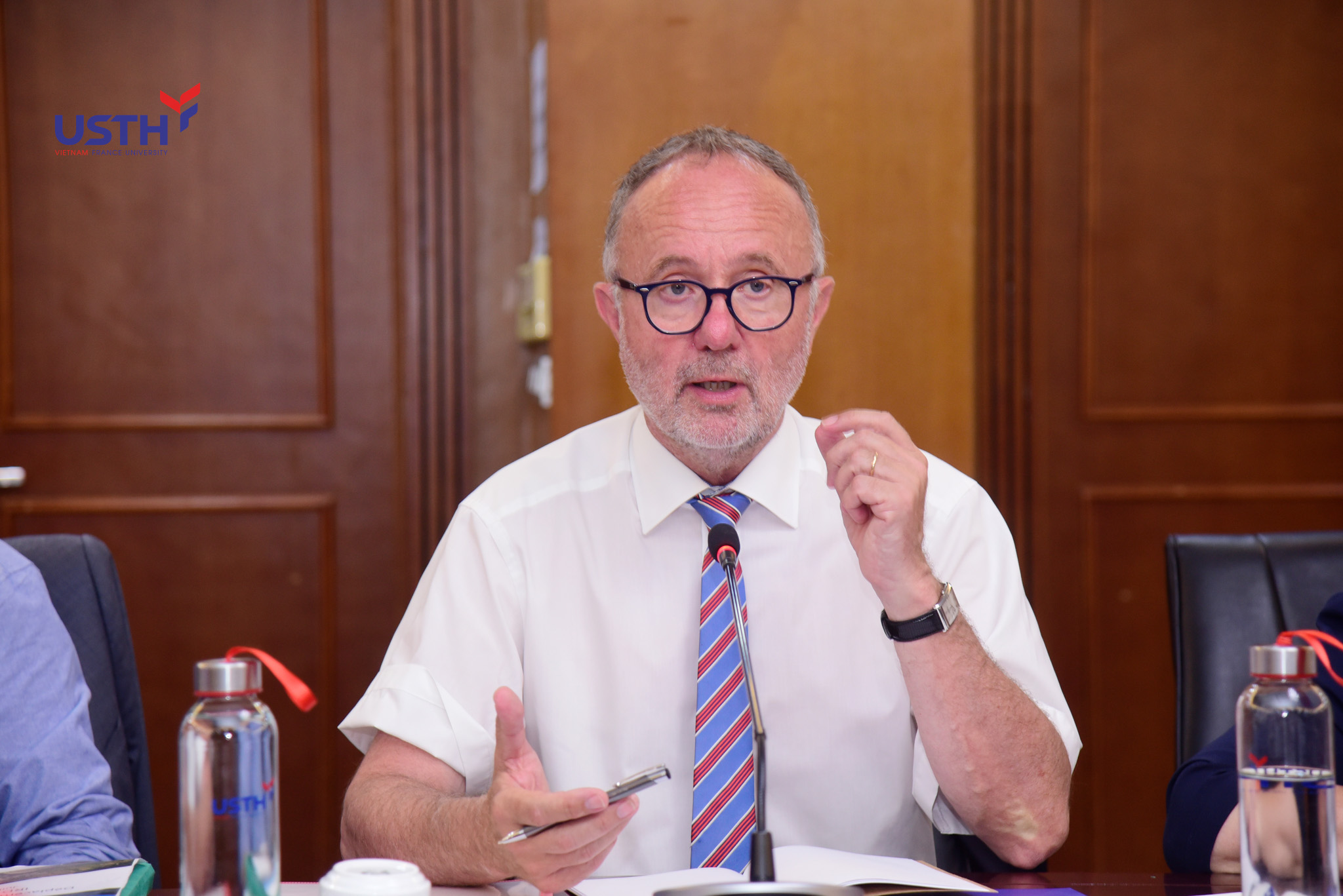
Dr. Valérie Verdier and Mr. Bruno David expressed their gratitude for the warm welcome from USTH’s Rector Board and were impressed by USTH’s remarkable progress. They assured USTH of IRD and MNHN’s continued support during this important phase of the university’s development.
As part of the meeting, Ms. Valérie Verdier and Prof. Jean-Marc Lavest signed the cooperation agreement for the development of LOTUS for the period of 2023-2027.
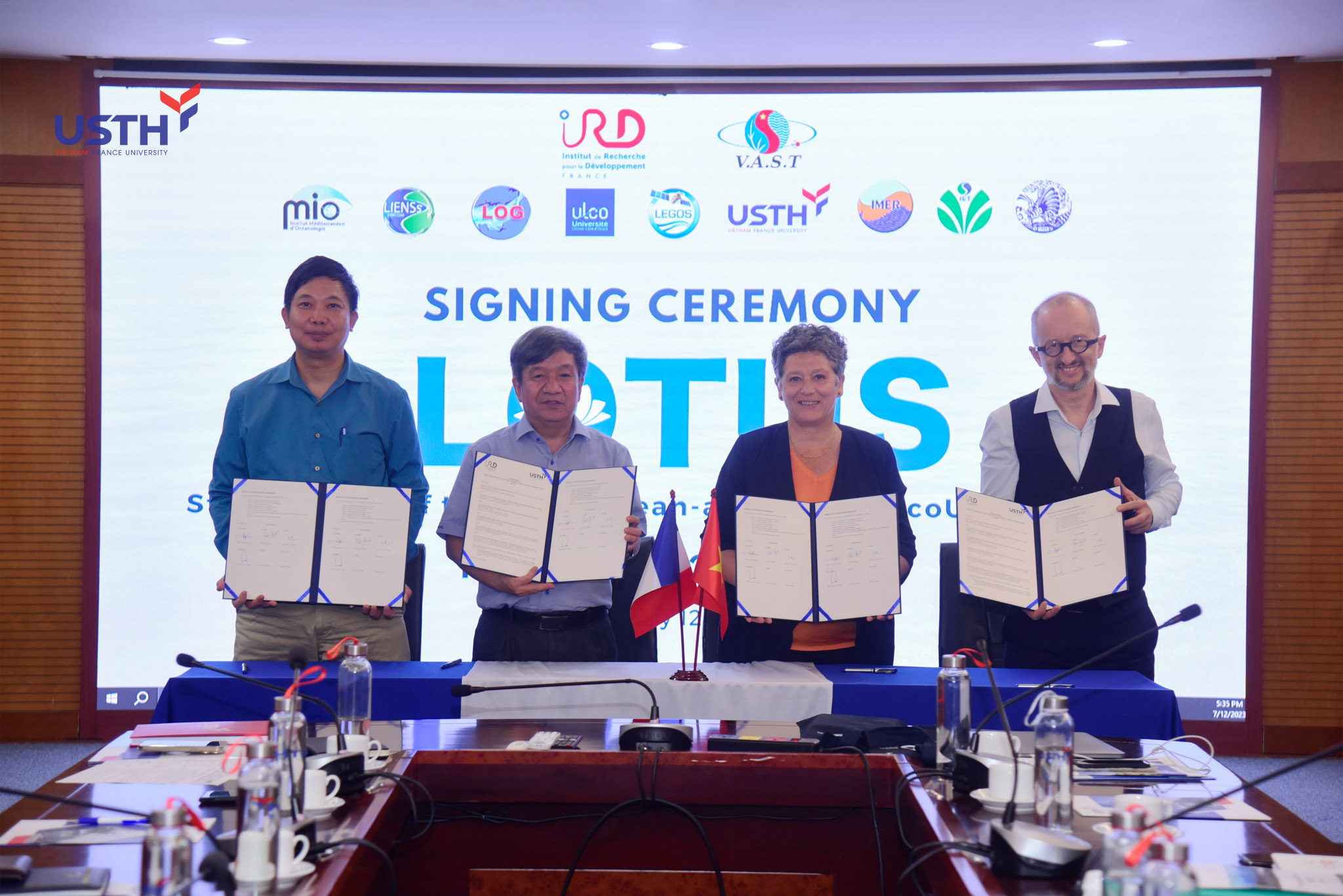
The LOTUS laboratory was established in 2018 and receives annual funding from IRD. Its main objective is to understand and monitor the characteristics and changes in the transport of water and related materials in the land-ocean-atmosphere system, specifically in the coastal areas of Vietnam and Southeast Asia.
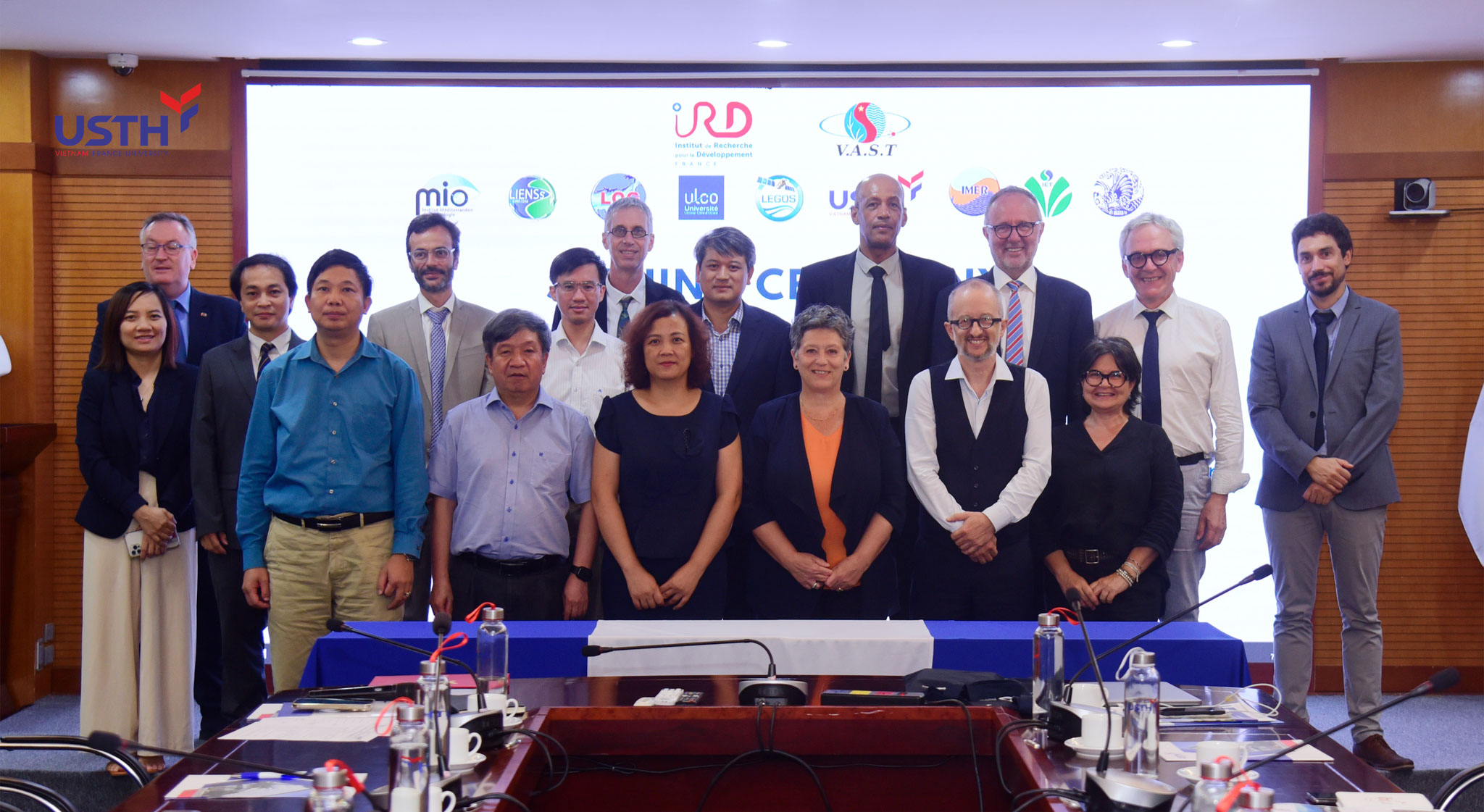
After five years of implementation, LOTUS completed its phase one research in the Red River Delta and Gulf of Tonkin regions in Vietnam. Some notable results of LOTUS include the publication of 76 research papers, such as “The distinct impacts of the two types of ENSO on rainfall variability over Southeast Asia” in the Climate Dynamics journal and “Multi-scale variability of circulation in the Gulf of Tonkin from remote sensing of surface currents by high-frequency radars” in the Ocean Dynamics journal. Additionally, the project has successfully trained 13 PhD candidates through its research topics.
The renewal of the cooperation agreement between IRD and USTH for the development of LOTUS will provide favorable conditions for scientists to conduct phase two research in the Southeast Asia region.
